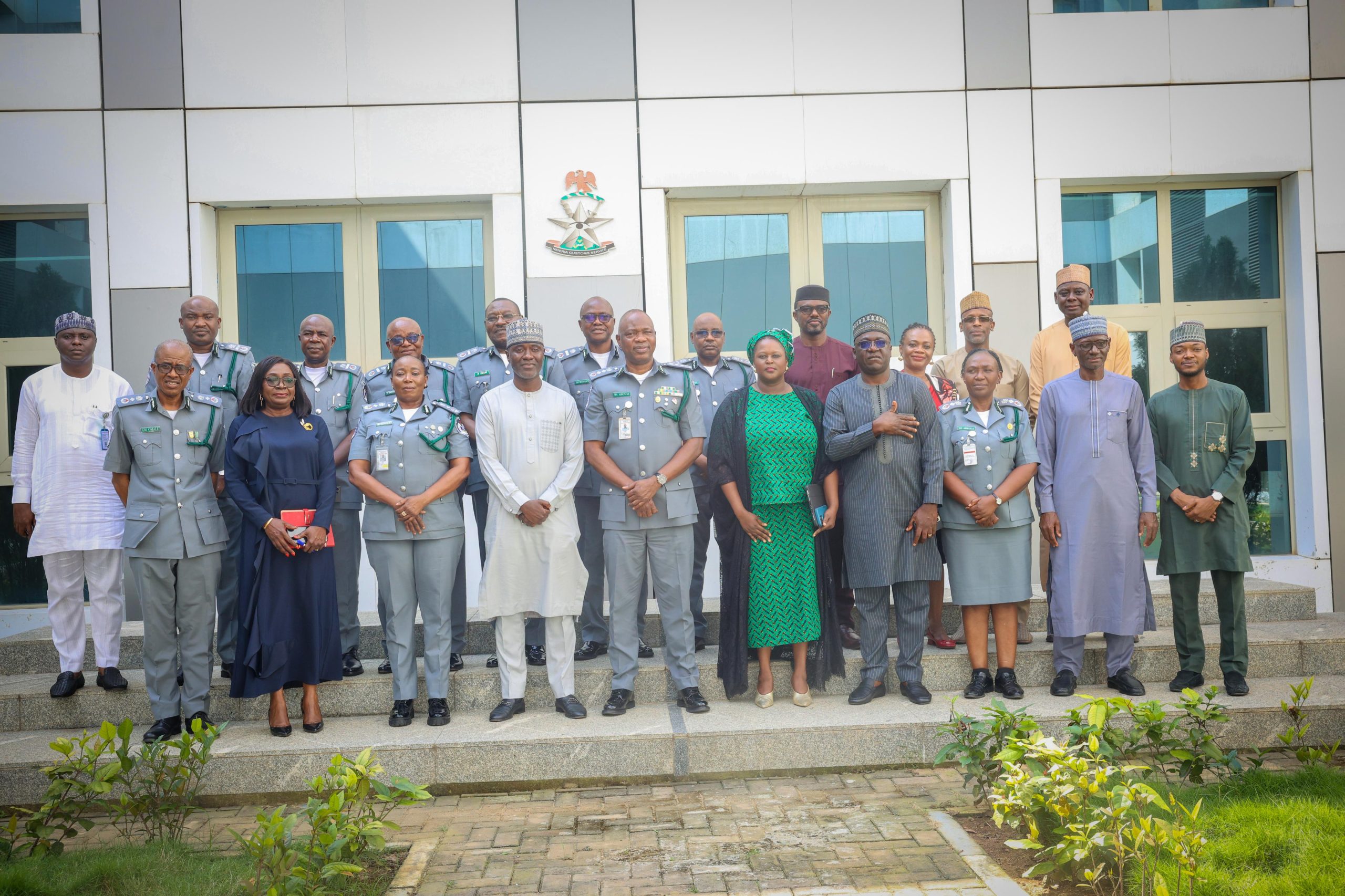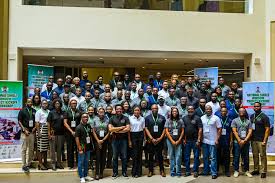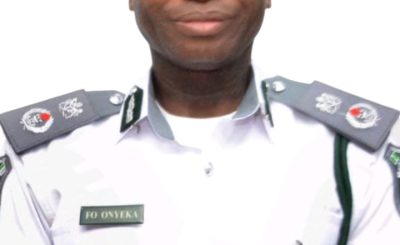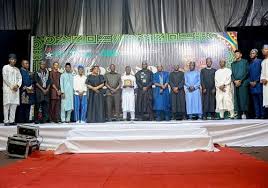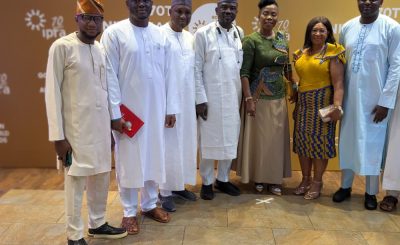BStephen Ubanna
Determined to enhance higher monitoring of imported cargoes through the nation’s seaports, airports and Land border stations across the country, that will improve the Service revenue generation, the Nigeria Customs Service, NCS, under the Leadership of Bashir Adewale Adeniyi, MFR and Aminu Maida, the Chief Executive Officer, CEO, Nigerian Communications Commission, NCC, appears to have entered into a close working relationship.
For the 2025, fiscal year, the Federal Government , FG, had set aN6.5 trn target for the service and which the Customs Authorities needed the support of relevant security agencies including the Nigerian Communication Service, NCC, personnel, particular, in the areas of communication services to effectively monitor shipment of containers ladened with different cargoes from the Asia countries of China, India, South Korea, Taiwan, Hongkong, the North American country of the United States and other parts of te world into Nigeria.
Many believes that the signing of the working agreement between the two government agencies would go a long way to help the Service to block areas of revenue leakages at the country’s destination points with ease.
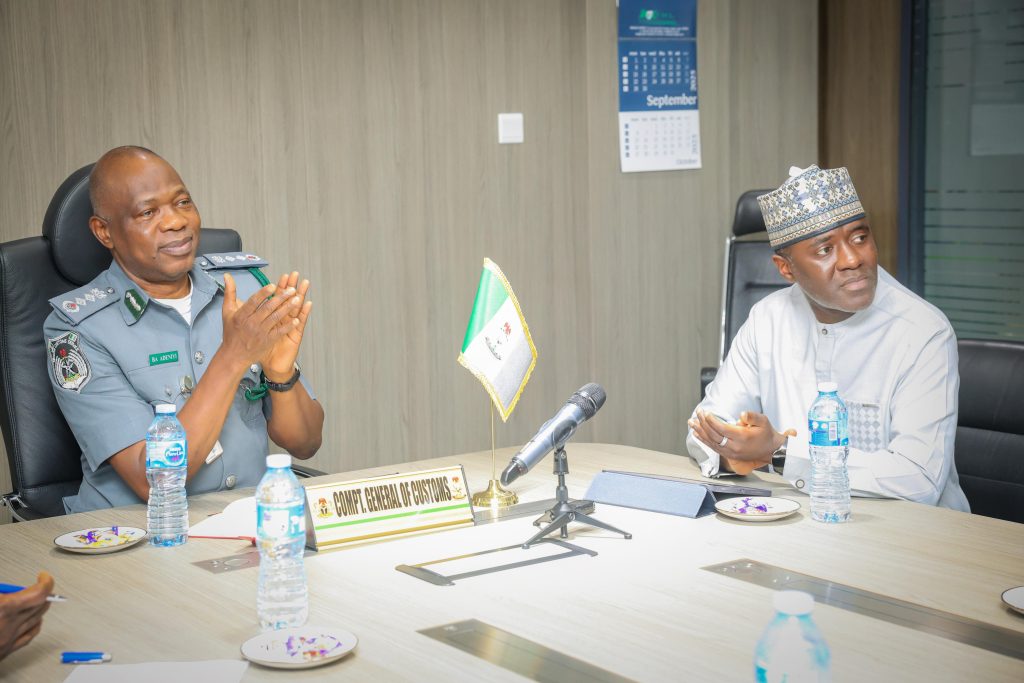
An elated CGC Adeniyi, had said that the deal, signed on Tuesday, September 30, 2025, at the Customs Headquarters, Abuja, the Federal Capital Territory, FCT, between the two government agencies was already ‘’looking beyond revenue generation to the security implications of unchecked importation of mobile communication services’’. Given the importance attached to the NCC event, may have engaged the CGC, that he could attend, let alone send a representative to the League of Maritime Editors, LOME, seminar on Nigeria’s Chairmanship of the World Customs Organisation, WCO, Council, in Brussels, Belgium, and its expected benefits to the Nigerian economy.
At the NCS, event, at the Customs Headquarters, the Customs Comptroller General had told those that cares to listen that the synergy with the NCC would allow both agencies to strengthen their monitoring systems for the befit of the country’s economy.
Speaking in his capacity as the Comptroller General of Customs with a mandate to collect N6.5 trn as a revenue target for the year, 2025 and pay into the Federation Account, Adeniyi, had explained that ‘’technology -related imports such as mobile phones, network boosters and other telecommunication equipment, must be subjected to proper certification under the Customs tariff regime’’.
The Customs Comptroller General , who may have advantage of Aminu, the CEO, of NCC, visit to his office at the Customs Headquarters and the signing of the new collaboration Communication services deal had sounded it loud and clear that such measures would not only ensure authorized commination equipment systems are permitted to bring them into the country but pay the appropriate duties , which an insider had said was not the case in the past.
This is bad news for the mobile phones, network boosters and other telecommunication importers through the seaports, airports and land border stations across the country who had been smiling to the banks over the years to the disadvantage of both past and present Nigerian Government.
Based the new working agreement between the NCS and NCC, the CGC, who could not hide his feelings had said that the Service would work with the Communication Commission ‘’to train its officers on certification processes and align tariff codes with regulated services to curb abuses at the seaports, airports and the borders. He did not stop there.
Although, the NCS, had taken advantage of the communication lapses at the seaports, airport and the border posts to reach a working agreement with NCSS, the CGC, had said that both for an improved effective national security and the service revenue generation, it could still have deepened collaboration with the NCC. He was emphatic on the border security issues.
It would be recalled that the NCC leadership had noted the growing need for cooperation in maintaining communication facilities in highly populated Urban areas like Lagos, the nation’s commercial nerve-centre, Abuja, the FCT, PortHarcourt, the oil city of Rivers state and other Urban areas across the country.
The NCC, Leadership had observed that the concentration of high-rise buildings in Lagos and Abuja particular, coupled with places of ownership and sensitive institutions, demands vigilance and shared information between both agencies to prevent disasters and forestall the activities of fraudulent importers with their agents.
Maida, the NCC, helmsman, may have taken advantage of the opportunity provided with the signing of the communication services collaboration deal with the sister agency, NCS, Counterpart, to state categorically that this has become very necessary in recognition of CGC Adeniyi’s Leadership both at home and the WCO.
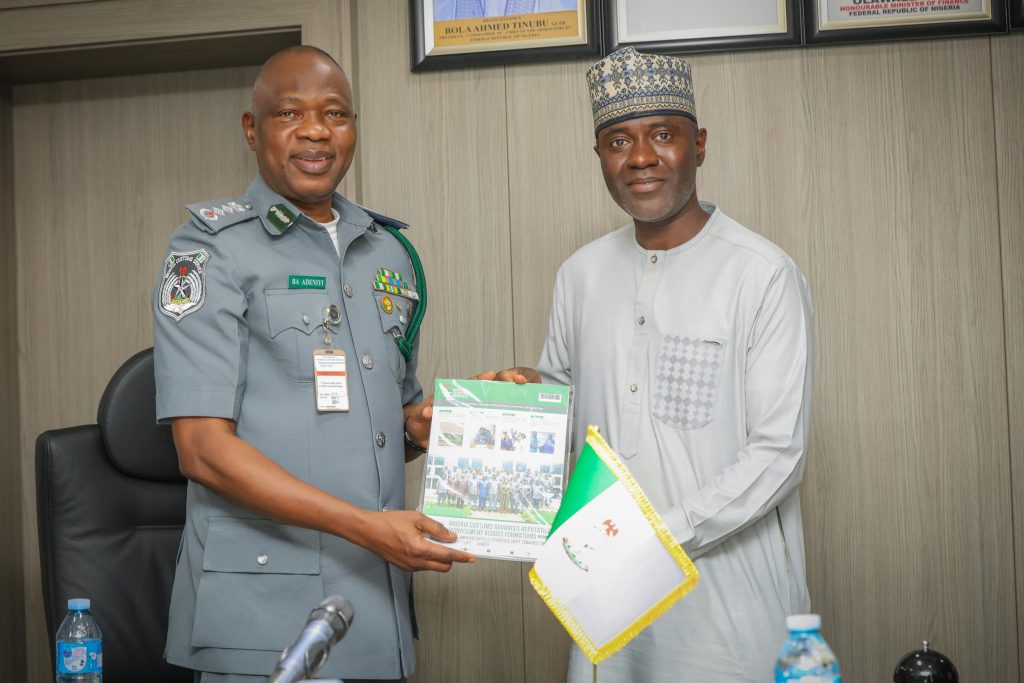
The NCC, boss had said that that with ‘’The Devise Management system’’, described as a platform designed to track imported phones and block substandard devices ‘’ it would not only help the Customs at the Command levels to boost revenue collection but also enhance the quality of service for telecommunication subscribers.
Note that one of the least understood factors that was said to have affected the quality of service- delivery in Customs operations over the years had been’’ the device itself’’. Abdullahi Aliyu Maiwada, an Assistant Comptroller and the Customs spokesperson had stated that much in a statement, noting that if a subscriber is using a substandard phone, no matter the investment operators make in their networks, service quality will remain poor.
This my have informed why the NCC Boss, had repeatedly said at various forums within the country that DMS project is critical to Communication systems. He may have gladdened the heart of the CGC, when he raised concerns over ‘’the controlled use of network boosters’, which though sometimes helpful to individuals, but often ‘’distort signals and reduce overall network quality’’.
It was not surprising why he has called for Customs Authorities support in restricting the importation of uncertified network boosters and ensuring that only approved devices enter into the Nigerian market. This is where MTN Nigeria, Airtel Nigeria, Globalcom, and 9mobile (Etisalat), have to sit up and ensure they do the right ting to avoid playing the hands of the Customs personnel at the nation’s seaports or airports under the new Communication system arrangement between the NCS and NCC, which appears to have blocked all areas of Leakage.
Even Spectranet, Tizeti, Fibre One, Smile, VDT communications, ipNX, Starlink and other internet service providers, ISP, across the country that offers servicers for accessing or using the internet to individuals, homes and business, need to watch it as well, as it is no longer going to business as usual.
The ISPs, which provide internet access to individuals and companies through various technologies, including fibre-optic, wireless and satellite connections according to a communication expert over the years have taken advantage of their expertise in the communication technology to shortchange the government but the table will turn against this time around as the NCS and NCC , had reached a deal to train its officers in the areas of certification processes that would align with the Service tariff codes. Vintage Adeniyi.

